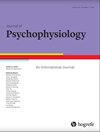Influence of Bilingualism on Behavioral and Electrophysiological Parameters of Cognitive Control
IF 0.9
4区 心理学
Q4 NEUROSCIENCES
引用次数: 0
Abstract
Abstract. Bilingualism has been associated with better cognitive control as compared to monolingualism. However, the robustness of the respective findings is subject to a recent debate, and moderators should be taken into consideration. We reasoned that groups immersed in their second language should show a greater bilingual advantage in cognitive control as compared to non-immersed participants. Further, stimulus language (first or second language), word similarity in the two languages (similar or dissimilar), as well as congruency between ink and word were varied. Forty-five participants from three different language groups (Romance, Slavic, and German) conducted a Stroop task while EEG was recorded. Higher cognitive control demand was operationalized as (1) longer reaction times, (2) higher error rates, (3) stronger N400, (4) increased Late Positive Complex (LPC), and (5) stronger Frontal Midline Theta activity. The classical Stroop interference effect was replicated for all dependent variables. Contrary to expectation, participants immersed in their second language did not exhibit any inhibition advantage in the Stroop task. Moreover, higher script similarity between first and second languages led to faster response times in general. Results are discussed in light of the current debate on the existence of a bilingual advantage in cognitive control.双语对认知控制行为和电生理参数的影响
摘要与单语相比,双语与更好的认知控制有关。然而,有关调查结果的稳健性有待于最近的辩论,应该考虑主持人。我们推断,与非沉浸式参与者相比,沉浸在第二语言中的群体在认知控制方面应该表现出更大的双语优势。此外,刺激语言(第一或第二语言)、两种语言中的单词相似性(相似或不相似)以及墨水和单词之间的一致性也各不相同。来自三个不同语言组(浪漫语、斯拉夫语和德语)的45名参与者在记录脑电图的同时进行了Stroop任务。更高的认知控制需求被操作为(1)更长的反应时间,(2)更高的错误率,(3)更强的N400,(4)增加的晚期阳性复合物(LPC),以及(5)更强的额叶中线Theta活动。所有因变量都重复了经典的Stroop干扰效应。与预期相反,沉浸在第二语言中的参与者在Stroop任务中没有表现出任何抑制优势。此外,第一语言和第二语言之间更高的脚本相似性通常会导致更快的响应时间。根据目前关于认知控制中是否存在双语优势的争论,对结果进行了讨论。
本文章由计算机程序翻译,如有差异,请以英文原文为准。
求助全文
约1分钟内获得全文
求助全文
来源期刊

Journal of Psychophysiology
医学-神经科学
CiteScore
2.60
自引率
7.70%
发文量
25
审稿时长
>12 weeks
期刊介绍:
The Journal of Psychophysiology is an international periodical that presents original research in all fields employing psychophysiological measures on human subjects. Contributions are published from psychology, physiology, clinical psychology, psychiatry, neurosciences, and pharmacology. Communications on new psychophysiological methods are presented as well. Space is also allocated for letters to the editor and book reviews. Occasional special issues are devoted to important current issues in psychophysiology.
 求助内容:
求助内容: 应助结果提醒方式:
应助结果提醒方式:


